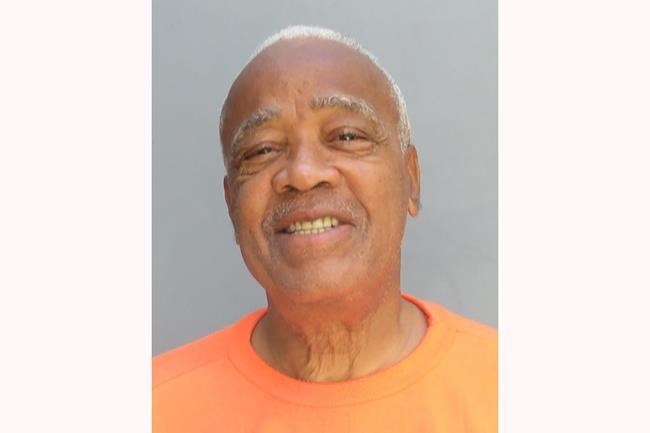
FILE - This undated photo provided by the Arizona Department of Corrections, Rehabilitation and Reentry shows prisoner Murray Hooper, who is scheduled to be executed on Nov. 16, 2022, for his convictions in the killings of Pat Redmond and Helen Phelps in Phoenix. On Wednesday, Oct. 19 a lawyer for Hooper asked a judge to order fingerprint and DNA tests on evidence from the two killings in December 1980. (Arizona Department of Corrections, Rehabilitation and Reentry via AP, File)
Republished October 19, 2022 - 5:59 PM
Original Publication Date October 19, 2022 - 5:21 PM
PHOENIX (AP) — A judge is mulling an Arizona death row prisoner’s request to have fingerprint and DNA tests conducted on evidence from the two 1980 killings for which he is scheduled to be executed next month.
A lawyer for Murray Hooper said at a hearing Wednesday that her client is innocent, that no physical evidence ties him to the killings and that forensic testing could lead to the identification of those responsible. Kelly Culshaw, Hooper's attorney, also raised questions about the benefits received by witnesses who testified against her client, including favorable treatment in other criminal cases.
“Forensic evidence would have made a difference in this case,” Culshaw said.
Hooper was convicted before computerized fingerprint systems and DNA testing were available in criminal cases, according to his legal team.
Prosecutors say that even if someone else’s prints or DNA were found, that wouldn’t overcome the overwhelming evidence against Hooper.
Hooper is scheduled to be executed by lethal injection or lethal gas at a prison in Florence, Arizona, on Nov. 16 for the killings of William “Pat” Redmond and his mother-in-law, Helen Phelps, at Redmond’s home in Phoenix on Dec. 31, 1980. Redmond’s wife, Marilyn, was shot in the head but recovered.
Lawyers for Hooper say Marilyn Redmond’s description of the assailants changed several times before she identified their client, who claimed not to be in Arizona at the time.
Superior Court Judge Jennifer Green, who hasn’t yet issued a ruling on the forensic testing request, pointed out that a federal appeals court characterized the evidence implicating Hooper as overwhelming.
Asked about the criticism that some witnesses had an incentive to lie, prosecutor Jeffrey Sparks said jurors at Hooper’s trial and appeals courts considered those claims and concluded there was no chance that would have changed the verdict.
Two other men, William Bracy and Edward McCall, were convicted in the killings but died before their death sentences could be carried out.
Authorities say Robert Cruz, who was alleged to have had ties to organized crime, hired Hooper, Bracy and McCall to kill Pat Redmond, who co-owned a printing business. They said Cruz wanted to take over the business and was unhappy that Redmond had rejected his offers to enter several printing contracts with Las Vegas hotels, according to court records. In 1995, Cruz was acquitted of murder charges in both deaths.
Hooper would be the third prisoner put to death this year after Arizona resumed carrying out executions in May, following a nearly eight-year hiatus attributed to both the difficulty of obtaining lethal injection drugs and criticism that a 2014 execution was botched.
There are 111 prisoners on Arizona’s death row, and 22 have exhausted their appeals, according to the Arizona Attorney General’s Office.
News from © The Associated Press, 2022